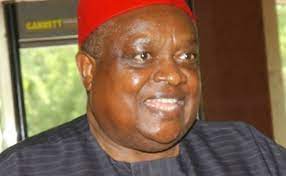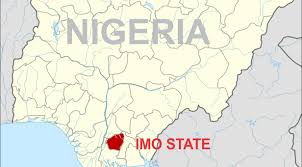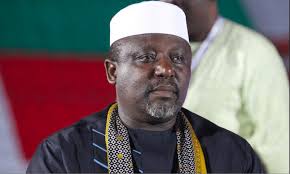By Kennedy Eweama (08035529265)
Responsible leadership is an indispensable integral part of any ideal human society. Responsible leadership by all indices, is a form of leadership that is accountable to the people. According to the the tenets of responsible leadership, the wishes of the led always reign paramount in the thoughts, and actions of those in leadership positions, or at the corridors of power, and not otherwise.
It is perhaps, imperative to stress that that in the absence of responsible leadership, the human society has the propensity of becoming a Hobbesian State, where life is expectedly “nasty,short, brutish and poor.” In a Hobbesian State, there is little or no respect at all for the sanctity of human life or dignity. Life itself, is subjected to the caprices of the those in authority, while the led dwell in despondency, perpetual subjugation, and melancholy. In other words, in a Hobbesian society, the leadership is mindless.
A classical example of a Hobbesian society is vividly captured in George Orwell’s “Animal Farm”. Though presented as a fable, events in that legendary literary piece illustrate man’s inhumanity to fellow man. The book underscores the essence of responsible leadership in any human society vis-a-vis the negative consequences when reverse is the case. The work elucidates on what befalls the society when characters like “Napoleon and Snowball”, (the wrong persons) are in positions of authority, and leadership. Thus, it can be argued that responsible leadership is a sine qua non for a healthy, robust, and purpose driven society.
I have methodically taken this route in this piece just to drive home some salient points, particularly to underline the ideal essence of a responsible leadership, which when compromised, elicits grave consequences. I am from Ikeduru local government area, an area known for its well sophisticated, and structured leadership pattern, at least, politically.
Recently, Chief Emmanuel Iwuanyanwu (Ahaejiagamba) announced his retirement from active politics. The vacuum expectedly left by his political big shoes cannot remain unfilled. Nature itself, abhors vacuum.
It is pertinent to point out that the dangers of allowing charlatans, and shenanigans to hijack the leadership structure in Ikeduru occasioned by the absence of Ahaejiagamba, will certainly be too devastating for the good people of Ikeduru to bear. Again, the height Ahaejiagamba has taken Ikeduru to, politically, cannot be be dragged down by a weak or callous successor.
In order to provide a prism through which the good people of Ikeduru can peep through, and plan strategically for tomorrow’s sake, a few liked minds, and myself,painstakingly fashioned out an assessment platform, to ascertain whom among the leaders in Ikeduru, can conveniently fit into Ahaejiagamba’s big political shoes. It was an agenda setting mechanism with genuine intentions. But, little did we know that Ahaejiagamba was to announce his retire from active politics at the twilight of our assignment.
Suffice it to point out therefore, that this leadership assessment started before Ahaejiagamba’s reported retirement from politics. As earlier stated, our intention abinitio, was to independently inquire about who best suits to lead the next generation of Ikeduru people. We were mindful of the fact that whatever has a beginning, must also have an end,and that every leadership has succession.
The criteria adopted for the assessment included : accessibility to the people, development consciousness, and relationship with the State and Federal Governments. Others were, team spirit, acceptability, liberal mindedness, past political/leadership records (if any), sagacity, and proven capacity.
The survey research design was adopted for the assessment exercise. The population of the study comprised of 2,700 indigenes of Ikeduru drawn from the 24 autonomous communities in Ikeduru, namely : Inyishi, Amaeke, Eziama, Amaimo, Umuofor, and Umuiri. Others are Okwu, Avuvu, Owuala Avuvu, Amakohia, Umudim, Atta, Ngugo, Atta West, and Owubinubi. The remaining autonomous communities are, Ikembra, Ugirike, Umu Onyeukwu, Abazu, Akabo, Amatta, Iho Dimeze, Ebikoro, and Uzoagba.
Those whose opinions were sampled included the political class, business persons (traders /artisans,market men and women), transporters (vehicle /Okada riders), and the academia. Each autonomous community had a minimum of 100 respondents.
Questionnaire and In-depth interview techniques were used in gathering the data. The rationale behind the use of the In-depth interview was because some of the respondents were not literate. Thus, the questionnaire will not work for them, and they must be included in an assessment of this nature. Hence, the In-depth interview was devised to take care of them.
Specifically, 300 respondents were randomly selected for the interview. The questionnaire was then administered on the remaining 2,400 persons, who are all indigenes of the 24 autonomous communities in Ikeduru LGA. To ease the administration of the questionnaire, two research assistants were recruited in each autonomous community, totalling 48 persons.
The research assistants were drawn from their areas of assignment, and therefore, have good knowledge of their areas’ geography, as well as those on whom the questionnaire were administered on.
The research investigation recorded a success rate of 95.4%.This implied that 2,900 questionnaires were successfully recovered for evaluation. The descriptive statistics of frequencies and percentages were used to analyze the questionnaires, while the content analysis technique was used to analyze the qualitative data derived through the In-depth interview.
I have taken ample time to explain the modus operandi of the assessment exercise in order to encourage seamless comprehension, and also eliminate ambiguity. It is equally important to state that the acronyms of the leaders covered by this assessment were used in this write up rather than their full names. The reason is simply to avoid unnecessary complaints of being slighted by this assessment. It is an incontestable fact that our political leaders delight in unnecessary class supremacy struggle. They are very egocentric.
The above reasons informed the resolve to use acronyms rather than names in this analysis. It is however, hoped that those with discerning minds can still decipher the content of the message,and the acronyms.
The political leaders randomly selected for the assessment are represented below by their acronyms :
1.RKN2.CUO 3.CCA 4.SSA 5.HCA 6.CCO 7.HUO 8.PPN 9.CDM10.CSA1I.CSE
It should be noted that in the questionnaire document, and during the In-depth interview session, the leaders’ full names and identities were clearly stated, while the respondents’ identity, on the other hand, were shielded. This was done to enable the respondents to make rational, unbiased, and logical decisions about the 11 leaders meticulously selected for this exercise.- OBSERVATIONS /FINDINGS
The findings from the responses to the questionnaire and evaluated report garnered through the In-depth interview technique, indisputably assert that No.3 (CCA) – Chief Charles Amadi (Chavon) is the most popular political leader in Ikeduru today. 82 % of the respondents voting in respect of the criteria adopted for the assessment, expressed unflinching confidence, and optimism in the sterling leadership qualities of Chavon, and his capacity to selflessly galvanize the people of Ikeduru to purposeful, and result oriented political sojourning.
For instance, Mrs Philomena Ejike from Uzoagba, described Chief Charles Amadi in the following way, “he is grounded in politics, well focused, dogged and very accommodating. He is the type of leader we all need at this time.” Mr Jude Enyeribe from Ngugo, in turn, contended that “Chavon has indeed, proven himself as a true leader by his numerous actions. He has provided jobs for numerous Ikeduru sons, and daughters,and by so doing, brought relief and rekindled hope of a better tomorrow in many families.He has the capacity.”- An Okada rider at Nkwoimo in Amaimo, who simply identified himself as Nedu, posited that Ikeduru people are enjoying numerous road projects either facilitated or constructed by Chavon himself.” He doesn’t discriminate, and sees all Ikeduru people as one.”Architect Chibuzor from Umudim, argued that Chavon is” our man, any time and any day. “He said that” we no longer need selfish people as leaders. We need someone who has the capacity to bring development projects to Ikeduru through his vast contacts, and not a person who will only think of his pockets, and family. ”
- Chief Jamike from Iho Dimeze, in his submission, noted that Chavon is single handedly building a state of the art Obi (Secretariat) for traditional rulers in Ikeduru, which does not exist anywhere else in the whole of South East, building a world class monastery for the catholic archdiocese of Owerri, and several other projects scattered throughout Ikeduru land. “I am sure no leader in Ikeduru can match Chavon’s credentials,”Jamike stated. One Julius from Ebikoro opined that” of all the people mentioned in your assessment, and even those not mentioned, Chavon stands tallest in rating. He is accessible, dependable, and reliable. “
From Ikeduru East to Ikeduru West, the responses were not much different. However, there were some dissensions , particularly from those who do not share same political ideology or fraternity with Chief Charles Amadi. This is understandable.
Nevertheless, the dissenting minority views seem infinitesimal in comparison to the avalanche of goodwill Chavon apparently enjoys among Ikeduru people across all strata, as evidenced by the assessment carried out.
Indeed,it would be axiomatic to posit that Chiefs Emmanuel Iwuanyanwu and Charles Amadi, can ideally be likened as two of a kind. One can therefore, only urge Chief Amadi not to rest on his oars as a lot still needs to done to reposition Ikeduru to become a socioeconomic, and political force in Imo State.
Together, we can. Yes, we can.









